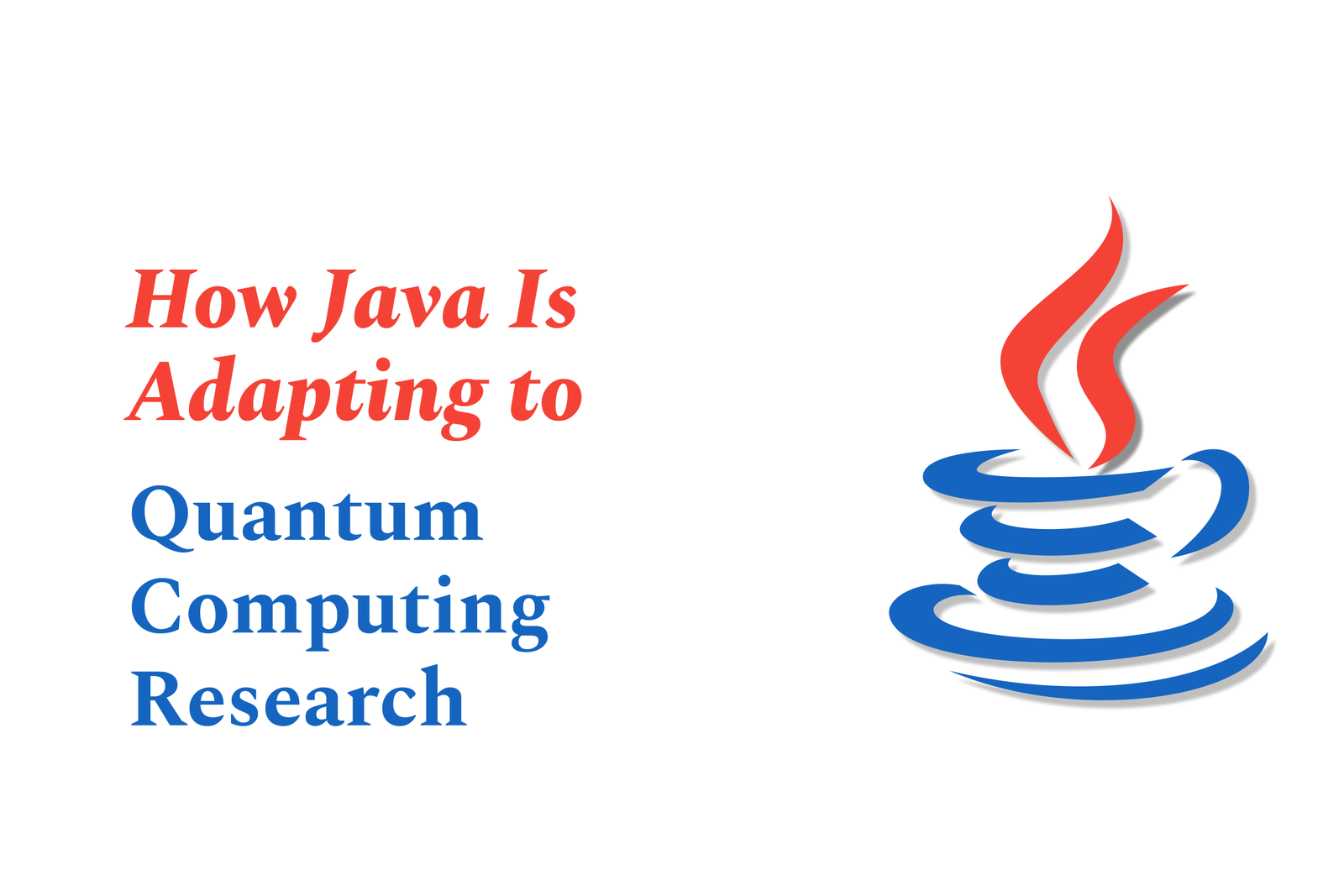How Java Is Adapting to Quantum Computing Research
Java is adapting to quantum computing by evolving its libraries and tools to support quantum algorithms, enabling hybrid classical-quantum applications. Its portability, reliability, and vast ecosystem help developers bridge classical programming with emerging quantum technologies.
How Java Is Adapting to Quantum Computing Research
1 ) Java’s Emerging Role in Quantum Computing
Quantum computing is rapidly evolving from theory to practical applications, and Java, a widely used object oriented language, is playing a crucial role in this transformation. Java simplifies the development and deployment of quantum computing software through its robustness, portability, and extensive library ecosystem, making it a preferred choice for developers entering the quantum domain.
2 ) Key Advantages of Java for Quantum Computing
Robustness and Reliability: Java’s strong typing and automatic memory management minimize programming errors, essential in the complex and error sensitive field of quantum computing.
Platform Portability: The “write once, run anywhere” capability of Java supports the diverse and evolving hardware architectures of quantum computers, allowing the same codebase to be used across different quantum platforms.
Rich Libraries: Java provides comprehensive libraries, such as Apache Math, which facilitate the implementation of complex quantum algorithms and calculations.
Strong Developer Community: Java’s large and active global community offers a wealth of resources, accelerating quantum computing innovation.
3 ) Influence of Java on Quantum Computing Development
Java is expected to act as a bridge between classical and quantum programming, enabling faster algorithm development and easier experimentation. Its portability enhances accessibility, inviting more researchers and developers to contribute to the field. Additionally, Java based quantum simulation tools improve the accuracy and efficiency of modeling quantum systems.
4 ) Java and Quantum Cryptography
Quantum computing promises unprecedented advancements in cryptography, including unbreakable encryption. Java’s integration with quantum safe cryptography libraries supports the development of secure communication protocols designed for the quantum era.
5 ) The Future Outlook for Java in Quantum Computing
As quantum technologies mature, Java’s combination of reliability, portability, and community driven development positions it as a foundational language driving the growth of quantum applications. Its sustained global popularity ensures ongoing support and rapid evolution, solidifying Java’s pivotal role in advancing quantum computing research and practice.
https://justacademy.in/news-detail/what-ios-19-means-for-augmented-reality-developers
https://justacademy.in/news-detail/why-react-native-is-key-to-rapid-prototyping-in-2025
https://justacademy.in/news-detail/dartconf-2025-highlights
https://justacademy.in/news-detail/java-api-for-json-processing:-updates-you-should-know
https://justacademy.in/news-detail/android-5g-support-expansion-news
Related Posts
In 2025, top Angular libraries offer modern, feature-rich components and tools for building dynamic web apps. From powerful data grids to low-code platforms like UI Bakery, these libraries enhance development speed, UI design, and scalability, making them essential for Angular developers.
Migrating from AngularJS to Angular 17 involves gradually upgrading your app by running both frameworks together using tools like ngUpgrade, rewriting components in TypeScript, and adopting Angular’s modern architecture to enhance performance, maintainability, and long-term support.
Angular state management tools help organize and handle app data efficiently, improving scalability and maintainability. Popular options include NgRx for robust, RxJS-based patterns, and newer Signal Store solutions that offer simpler, reactive approaches integrated tightly with Angular’s latest features.
RxJS in Angular empowers developers to manage asynchronous data streams with powerful operators like `forkJoin`, `combineLatest`, and `zip`. Mastering these key operators in 2025 is essential for building efficient, reactive applications that handle complex event sequences seamlessly.
Angular performance optimization in 2025 focuses on improving app speed and responsiveness by using techniques like OnPush change detection, lazy loading, efficient data caching, and AOT compilation. These practices reduce load times, enhance user experience, and ensure scalable, fast Angular applications.
In 2025, Angular remains preferred for large-scale, enterprise apps with its robust, all-in-one framework, while Vue attracts developers seeking simplicity and fast development for smaller projects. Both frameworks excel, with choice driven by project needs and team expertise.
Angular Signals are a new reactive primitive in Angular 16 that enable fine-grained, efficient change detection by automatically tracking dependencies and updating only affected parts of the UI. They simplify state management and boost app performance, revolutionizing Angular's reactivity model.
Angular interview questions to prepare in 2025 focus on core concepts like components, directives, data binding, routing, and dependency injection, along with TypeScript mastery and latest Angular features to ensure strong practical knowledge for building scalable, efficient web applications.
AngularJS reached its official end of support in January 2022, meaning no further updates or security patches. To ensure app security and performance, developers should consider migrating to modern Angular versions or seek third-party long-term support options if immediate migration isn’t possible.
The Angular Roadmap 2025 highlights upcoming features focused on improving developer experience and performance, including zoneless Angular, Signals integration, enhanced Forms, async data handling, improved HMR, and expanded Angular Material/CDK enhancements, driving modern, efficient web app development.










